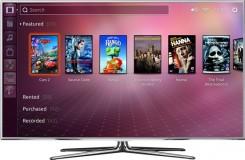CES Early Winners: Drones, Wearables, Cars
The annual Consumer Electronics Show (CES), kicking off this week in Las Vegas, is the chance for tech companies large and small to show off their latest gadgets and software. Huge enterprises such as Intel and Samsung use CES to unveil cutting-edge products, hoping that the international spotlight on the show will give their future sales a boost. Startups spend a lot of working capital on a booth in the Las Vegas Convention Center where CES takes place, praying they can draw even a tiny bit of buzz to their inventions. (While the big companies can easily afford a booth at the show, there’s a lot of debate over whether cash-strapped startups should shell out a sizable amount of cash to participate on the CES floor. Although some PR pros recommend their clients make a “big bet” on Vegas, relatively few companies manage to seize a small sliver of that CES spotlight.) Not everything deemed “hot” at CES takes off in the broader marketplace, at least not immediately. Multiple companies showed off wearable electronics at the 2014 show, but that category, despite the success of Fitbit and the Apple Watch, has yet to achieve anything close to the ubiquity of smartphones and PCs. In 2015, virtual-reality rigs were all the rage, although some of the biggest names in the space—such as Oculus Rift and SteamVR—won’t release until this year, and might not even gain significant momentum for quite some time. So what’s big at the 2016 CES? Participating companies plan on showing off dozens of drones, many of them specialized; VR headsets will again make an appearance, as more firms sense the time for commercialized virtual reality truly draws nigh. And yes, now that the Apple Watch demonstrated that millions of people are willing to strap a computer to their wrist, expect to see lots of booths loaded with wearable electronics of all types. Last but certainly not least, self-driving cars are slated to make a splashy appearance, with Ford widely expected to announce a technology project with Google. If the two companies roll out an ambitious plan for autonomous cars, it could drastically change the strategies of Apple, Tesla, Uber, and other companies exploring the self-driving space. The most pressing question is which products (if any) will come out of CES with enough momentum to become sizeable hits with consumers. The show’s timing in early January ensures it has a significant effect on how the rest of the year goes for many firms.



